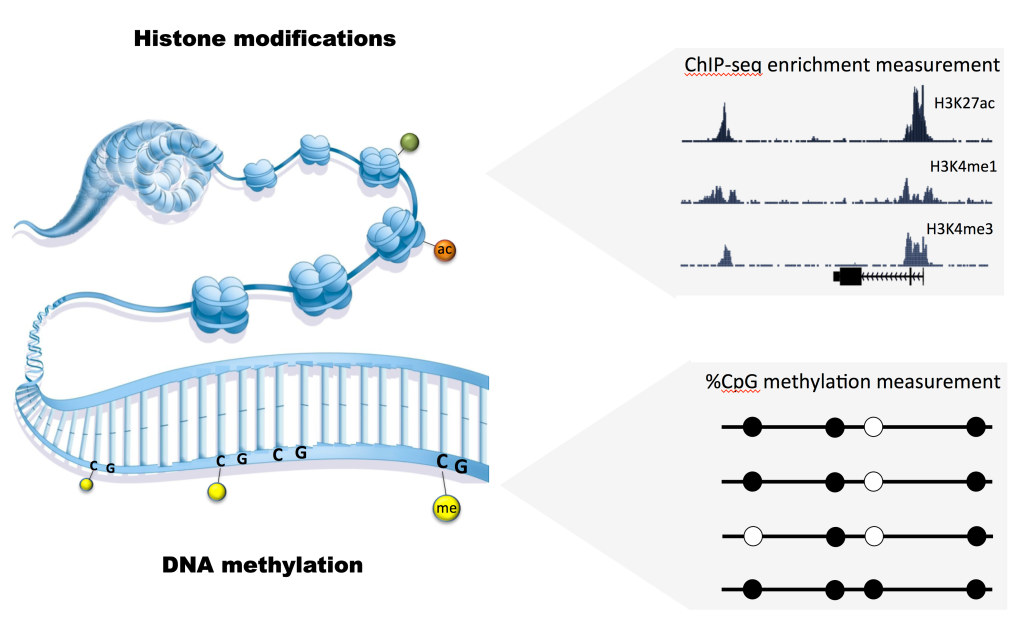About the KCVI Epigenetics Consortium
The goal of the KCVI Epigenetics Consortium is to promote epigenetics research and education across faculty, students, and physicians. The consortium is directed by Dr. Lucia Carbone and includes several OHSU faculty members whose research involves different aspects of epigenetic regulation (e.g. environmental epigenetics, maternal reprogramming, neuroscience, reproductive biology).
In order to facilitate epigenetic research and assist investigators that are new to this field, the consortium includes a Service Core. Investigators (from OHSU or outside) that need support for their projects can submit samples for DNA methylation and/or chromatin state analyses. Services offered by the core included bisulfite sequencing and chromatin immunoprecipitation followed by next-generation sequencing (ChIP-seq). To fully support projects, the core also includes bioinformatics data analysis. Projects are done in close collaboration with the Massively Parallel Sequencing Shared Resources (MPSSR) and the Gene Profiling Shared Resources. Investigators are encouraged to discuss with the core director (carbone@ohsu.edu) and staff about the study design in order to get recommendations on experimental strategy, antibody selection (ChIP), sample size and sample preparation. The core operates on a fee-for-service basis.
Services We Offer
Pre-grant consultation (free) includes assisting with study design, letter of support tailored to the grant, budget, description of methods and analysis.
Pre-project consultation (free) is planned by email and will serve to understand the scope of the project and agree on deliverables. A cost estimate for the discussed project is provided after the first meeting.
Analysis of DNA methylation:
- Whole-genome bisulfite sequencing (WGBS)
- Reduced Representation Bisulfite Sequencing (RRBS)
- TruSeq Methyl Capture (only for human)
- Locus-specific methylation using Sanger sequencing (Allelic Bisulfite Sequencing)
Analysis of Chromatin:
- Chromatin immunoprecipitation followed by sequencing (ChIP-seq)
- Histone marks: antibodies for H3K4me3, H3K27ac, H3K27me3, H3K4me1, H3K9me3 are already available in the core.
- Other marks or proteins: the investigator usually provides antibody for the protein of interest. Often a test ChIP is performed to validate antibody efficiency on the cells to be specifically used in the experiment.
- Assay for transposase-accessible chromatin using sequencing (ATAC-seq).
Bioinformatics analysis of epigenetic datasets.
QC and analysis is offered for all datasets generated by the epigenetics core. These include identification of differentially methylated regions (DMRs) between experimental groups, peak calling, and differential analysis for ChIP-seq and ATAC-seq are provided. Together with the raw data, QC reports, and data tables, a full report with charts and method description is delivered at the end of the project so that investigators have a record of the analysis for grants and manuscripts.
Contact carbone@ohsu.edu to inquire about the consortium and discuss possible projects.
Find us on Twitter @OHSUEpigenetics

